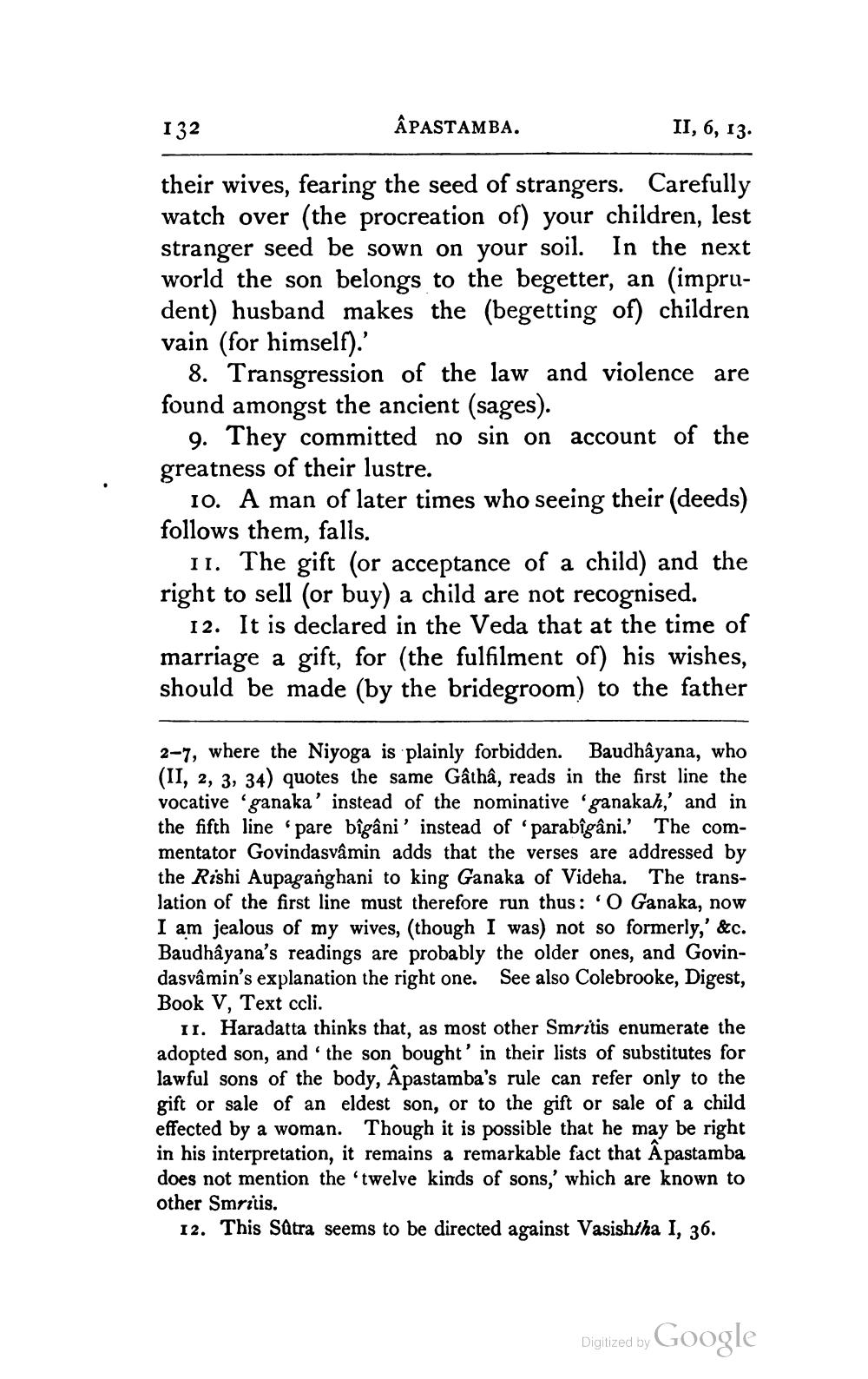________________
132
ÂPASTAMBA.
II, 6, 13.
their wives, fearing the seed of strangers. Carefully watch over (the procreation of) your children, lest stranger seed be sown on your soil. In the next world the son belongs to the begetter, an imprudent) husband makes the (begetting of) children vain (for himself).'
8. Transgression of the law and violence are found amongst the ancient (sages).
9. They committed no sin on account of the greatness of their lustre.
10. A man of later times who seeing their (deeds) follows them, falls.
11. The gift (or acceptance of a child) and the right to sell (or buy) a child are not recognised.
12. It is declared in the Veda that at the time of marriage a gift, for (the fulfilment of) his wishes, should be made by the bridegroom) to the father
2-7, where the Niyoga is plainly forbidden. Baudhâyana, who (II, 2, 3, 34) quotes the same Gâthâ, reads in the first line the vocative 'ganaka' instead of the nominative 'ganakah,' and in the fifth line "pare bîgâni' instead of "parabîgâni.' The commentator Govindasvâmin adds that the verses are addressed by the Rishi Aupaganghani to king Ganaka of Videha. The translation of the first line must therefore run thus: O Ganaka, now I am jealous of my wives, (though I was) not so formerly,' &c. Baudhâyana's readings are probably the older ones, and Govindasvâmin's explanation the right one. See also Colebrooke, Digest, Book V, Text ccli.
11. Haradatta thinks that, as most other Smritis enumerate the adopted son, and the son bought' in their lists of substitutes for lawful sons of the body, Âpastamba's rule can refer only to the gift or sale of an eldest son, or to the gift or sale of a child effected by a woman. Though it is possible that he may be right in his interpretation, it remains a remarkable fact that A pastamba does not mention the 'twelve kinds of sons, which are known to other Smritis.
12. This Satra seems to be directed against Vasishtha I, 36.
Digitized by Google




